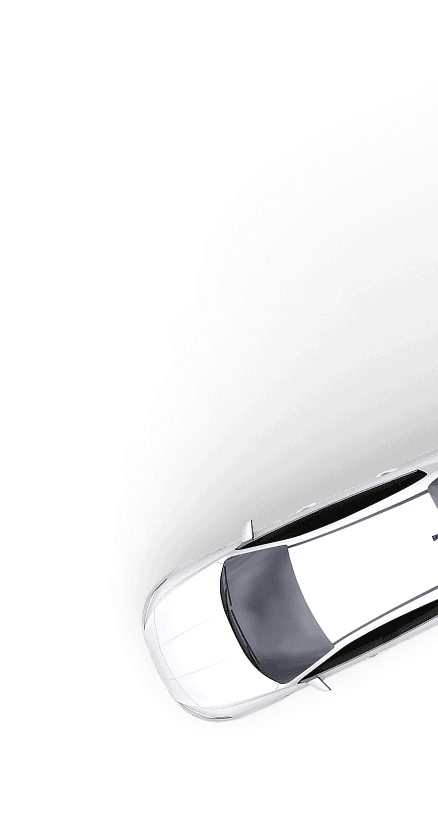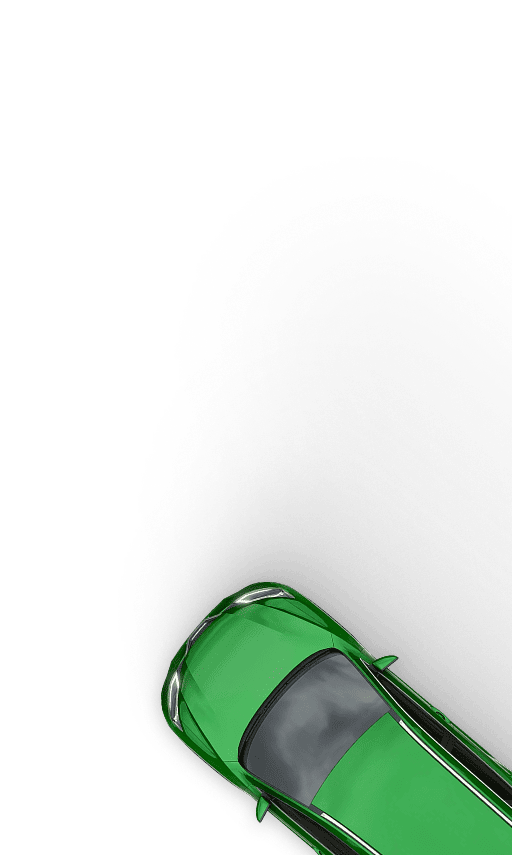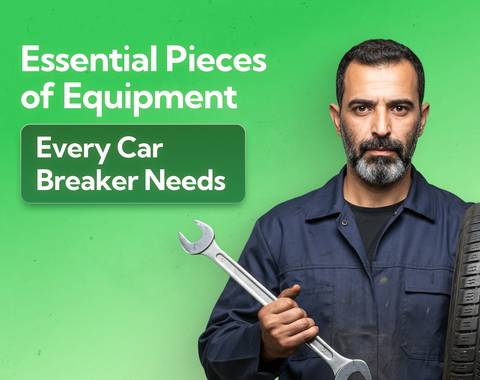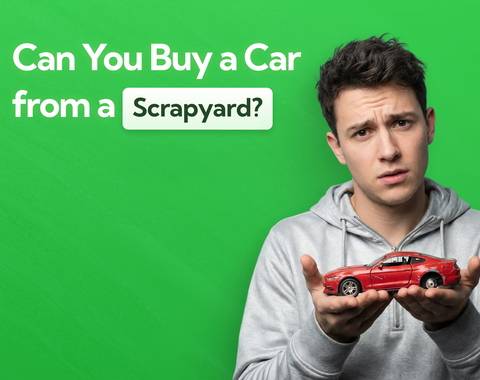Should I Scrap My Car? Repair vs Scrap
Is it worth repairing your car, or is it time to scrap it for good? This guide breaks down the key signs, costs and considerations to help you make the smartest decision for your wallet, safety and peace of mind.
Last updated: 6th November, 2025

Anthony Sharkey is COO at New Reg Limited (Car.co.uk, Trader.co.uk, Garage.co.uk), driving innovation in vehicle recycling, logistics, and customer experience.
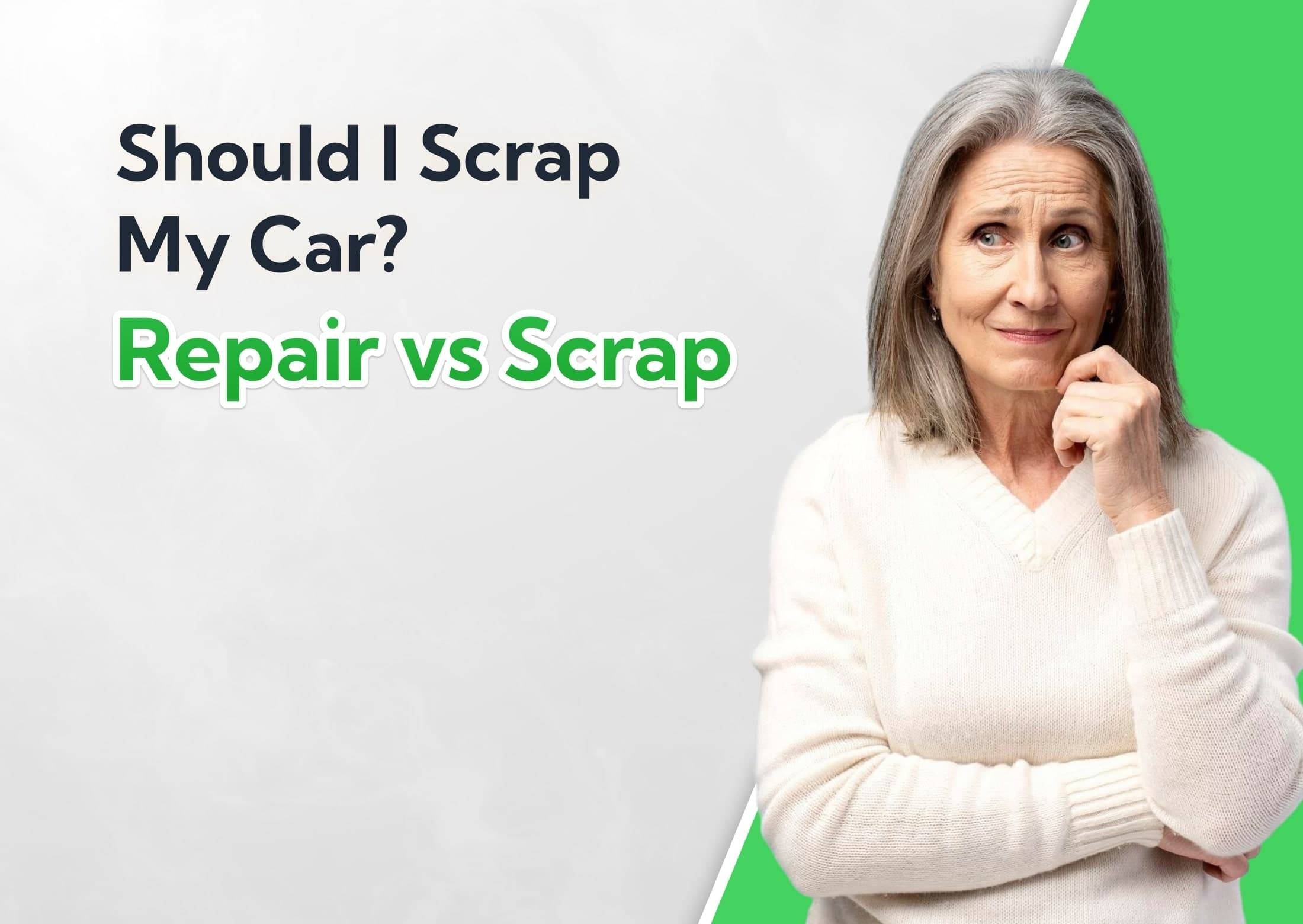
Listen to this story
Every driver who holds onto their car long enough eventually faces the same question: Is it worth repairing this car, or is it time to scrap it and move on?
The answer isn’t always so straightforward. It depends on repair costs, the age and condition of your vehicle, how often it's breaking down and what it’s actually worth on the open market versus at a scrapyard.
This decision isn’t just about fixing your car. It’s about protecting your finances, both now and in the long run. Scrap too soon and you miss out on resale value or a few more reliable years. But spend too much money on a failing car and you’re thousands of pounds in the hole.
After scrapping more than 130,000 cars through our company, I’ve broken down the key considerations in this guide:
- When repairs make sense
- When scrapping is smarter
- What affects your car’s scrap value
- How to decide with confidence
What's in this article
Signs you should scrap your car
Most drivers think scrapping your car is a last resort, but the reality is there are lots of instances where it’s the financially sensible option. Much like with insurance write-offs, if the vehicle’s reached a point where keeping it on the road costs more than it's worth, it’s time to let it go.
The biggest red flags usually involve major mechanical or structural failures. Think engine problems, transmission issues or frame damage after an accident. These aren’t quick fixes and generally come with high labour costs and uncertain results. If you’re staring down a repair bill in the thousands, and your car isn’t worth much more than that, scrapping starts to make sense.
Even without a catastrophic failure, repair costs still add up. Frequent breakdowns, recurring MOT fails and safety concerns all point to the same conclusion: your car’s value lies more in its parts and scrap metal than on the road.
Let’s dive deeper into the telltale signs it’s time to scrap your car.
Severe engine damage
The engine is a car’s most complex yet critical component. So when it fails, it’s one of (if not the) most expensive problems to fix. In most cases, severe engine damage signals the end of a vehicle’s useful life.
If you’re dealing with any of the following…
- A seized engine (often from oil starvation or overheating)
- A blown head gasket causing coolant and oil to mix
- A cracked or warped engine block
- Persistent knocking, loss of compression or heavy smoke from the exhaust
…it’s usually a sign that repair isn’t worth it.
In major cities across the UK, the average labour cost of engine repairs and replacements sits between £1,900 and £2,000. And that’s not even counting the parts themselves. We’ve come across hundreds of cars where the full replacement costs more than the car itself.
Major transmission issues
When your gearbox goes, you’re looking at one of the costliest repairs on any vehicle, second only to the engine. Automatic and manual transmissions both wear out once you get into the 100,000 to 200,000 mile mark, especially if you drive aggressively or don’t properly maintain it.
Common signs of serious transmission trouble include:
- Slipping gears or delayed shifting
- Grinding noises or difficulty changing gears
- Fluid leaks or burnt-smelling transmission fluid
- Complete gearbox failure
A replacement gearbox can cost anywhere from £500 to £5,000+, including parts and labour. For older and lower-value vehicles, that’s more than the car is worth.
So if your transmission gives out on you and your vehicle is already near its last legs, repairing it isn’t a good investment.
Structural damage
The first thing you’ll notice about structural damage is the cosmetic aspect. But when it comes to the most critical issues it creates, that’s not even in the top 5. It also affects your car’s safety, stability and roadworthiness. If the frame or chassis is bent, cracked or severely corroded, it compromises the entire vehicle, even if the engine and other components still run.
This type of damage is often the result of:
- Serious collisions
- Undercarriage impacts
- Advanced rust in areas like the suspension mounts, sills or subframe
Repairing structural issues can be incredibly labour-intensive and expensive. Welding, straightening and reinforcement work run into the thousands. And even then, there’s no guarantee your car will ever be as safe as it was before.
In cases where rust or accident damage has affected the vehicle’s core structure, scrapping is usually the safest and most economical route.
Age and mileage thresholds
While age and mileage aren’t automatic death sentences, they’re strong indicators of where your car is in its lifecycle. The older and more worn a vehicle gets, the more likely it is to develop expensive, recurring problems — and the less sense it makes to keep repairing them.
In our experience at Car.co.uk, the tipping point for most drivers tends to be:
- Cars over 15 years old
- Vehicles with more than 125,000 miles
Our internal data backs this up. The average age of a scrapped car is 19 years, with most falling into the 16-20 year range. And around 40% of the vehicles we’ve scrapped have more than 125,000 miles on them.
As mileage climbs, parts wear out. MOT failures become more frequent and the cost of upkeep rises sharply. At a certain point, you’re just delaying the inevitable.
Failed emissions or ULEZ non-compliance
If your car fails emissions testing or doesn't meet ULEZ standards, you’ll face both expensive repairs and daily charges just to drive it.
Diesel vehicles have to meet Euro 6 standards and petrol vehicles have to meet Euro 4 to avoid ULEZ penalties in London, and most other UK cities have a similar law. So older, higher-emitting cars are generally too expensive to keep on the road if you rely on urban travel.
Some of the most common emissions-related repairs include:
- DPF (Diesel Particulate Filter) replacement: Between £1,000 and £3,500
- Catalytic converter replacement: Between £150 and £900, with luxury and high-performance models stretching into the thousands
If your car is already aging or its value is low, spending that kind of money just to meet emissions rules (which are only getting stricter over time) doesn’t add up. In cases like these, scrapping the car and moving to a compliant model is the smarter, more future-proof decision.
Signs you should repair your car
If the problem is minor, the car has a solid service history and it hasn’t needed constant repairs in the past, it could very well have plenty of life left.
Repairs make more financial sense when:
- The issue is isolated and affordable to fix
- Your vehicle still has decent resale value
- It’s passed recent MOTs without major advisories
- You’ve kept up with regular maintenance
Even older cars are sometimes worth repairing if they’ve been looked after and the cost of fixing the fault is significantly lower than replacing the vehicle.
To help you weigh the options, let’s now look at when you might repair the car instead of scrapping it.
Minor, isolated issues
I’m talking about when your car has just one problem and it’s not a major one. Things like:
- Worn brake pads or discs
- Flat or ageing tyres
- A dead battery
- Faulty sensors or warning lights
- Suspension wear (like bushings or shock absorbers)
These kinds of issues that come with regular use and aren’t a sign of deeper trouble. Most of them are relatively low-cost and don’t affect the overall health of your vehicle. In fact, sorting them promptly actually extends your car’s life and keeps it running safely for years to come.
Low repair cost relative to value
If the repair bill is small compared to what your car is actually worth, keeping it makes far more financial sense than scrapping. The benchmark we use is 50%. When repairs cost more than half of your car’s current market value, fixing it is the smarter option.
Here’s why: most scrap cars fetch only £200 to £400 depending on weight and parts value. If your vehicle’s still worth several thousand after accounting for repairs, scrapping it leaves tons of money on the table.
For example, spending £600 to repair a car worth £3,000 is a much better return than scrapping it for £300 and starting from scratch. Not to mention, repairs actually add more resale value to the car because they improve its functionality.
Strong service history
Regular servicing shows the vehicle’s been looked after, which usually means fewer hidden issues and a longer remaining lifespan. It also makes repairs more worthwhile, since you’re working with a solid base rather than patching up a neglected car.
It’s also good for resale. Even if you’re selling a car without an MOT, service history adds value. Buyers are more likely to take a chance on a vehicle that’s been properly maintained, especially if major work has already been done (like a timing belt or clutch replacement).
On top of that, a car with no history of recurring faults is much less likely to develop new ones right after you’ve paid for a repair. If this is the first issue in a while (and everything else checks out) fixing it is often the right call.
Good market value
Certain models like the Toyota Yaris, Corolla, Ford Fiesta and VW Golf retain their value well thanks to their reliability, fuel efficiency and demand for parts. If your vehicle falls into that category, even a mid-cost repair can increase its resale price or make it easier to shift.
Do some research into the specific model you own. If it falls into that category, even a mid-cost repair lifts its resale value and makes it easier to shift.
In fact, recent work (like new tyres, brakes, clutch or a fresh MOT) actually makes the listing more attractive. Buyers pay more for a car when they know they won’t need to spend anything on it straight away.
Cost analysis: repair vs scrap
When deciding whether to repair or scrap your car, the numbers matter. This section will show you how to weigh up both sides and make a decision that makes financial sense.
Start by getting a clear picture of:
- How much your car is worth in its current condition
- How much the repair will cost, including parts, labour and follow-up work
Once you have both those figures, compare them directly. If the repair is cheap relative to the car’s value, it’s probably worth doing. If not, scrapping is the better outcome, especially once you factor in future reliability and potential resale.
In the next few sections, we’ll walk you through how to run the numbers properly, where to find accurate values and how to spot hidden costs that might tip the balance.
Calculating your car’s current value
Knowing your car’s real-time market value gives you a clear baseline. Without it, you can’t accurately compare whether the cost of repairs makes sense or if scrapping is the more logical choice.
Start with our free car valuation tool. It gives you an instant estimate based on your car’s make, model, age, mileage and condition. We’ll even give you a short video breakdown explaining how we calculate it, so you’ll understand what factors influence the final figure.
Cross-check that number with other online valuation sites, marketplace listings and dealer websites. Look at cars of the same model, year and mileage to see what they’re actually selling for (not just what they’re listed at).
Getting accurate repair estimates
One of the biggest mistakes we see drivers make is accepting the first repair quote they’re given. Prices for the same job vary wildly between garages, sometimes by hundreds of pounds. That’s enough to throw off your “50% of market value” threshold.
Always get at least three quotes from reputable garages or mechanics. Having multiple means it’s easy to spot inflated prices and gives you a realistic idea of the true cost.
When comparing quotes, look closely at:
- What’s actually included (labour, parts, diagnostics)
- The warranty on parts and workmanship
- Whether any “recommended” extras are truly necessary
Also ask about potential hidden costs. Things like rusted bolts, corroded components and additional labour that might not appear until the work starts. A trustworthy garage will be upfront about these.
What the experts say

Steven Jackson OBE
The 50% Rule in practice
Like I mentioned earlier, the 50% Rule is one of the best ways to decide whether to repair or scrap. If the repair cost is more than half your car’s current market value, it’s not worth fixing.
Why? When repairs eat up 50% or more of your car’s value, you’re spending money you’re not going to recover. Even if you repair it successfully, the car’s resale price won’t rise enough to justify the cost, and there’s always the risk of more problems appearing soon after.
To apply the rule, use this quick formula:
Repair cost ÷ Car’s market value × 100 = Repair cost percentage
If the result is over 50%, scrapping is often the smarter choice. Let’s say your car’s worth £2,000 and the repair quote is £1,200:
£1,200 ÷ £2,000 × 100 = 60%
In this case, scrapping is more cost-effective.
Common expensive repairs: scrap or fix?
Some repairs are so costly that they almost always trigger the question we’re answering in this guide: Should I scrap my car, or is it worth fixing?
Big-ticket issues like head gasket failure, seized engines, transmission faults, turbo problems and DPF issues are the most common reasons UK drivers decide to call it a day. These repairs come with hefty price tags and hint at deeper wear and tear throughout the vehicle.
Each of these problems can cost anywhere from hundreds to several thousand pounds to put right, which is why it’s important you understand the financial trade-off.
So let’s examine repairs one by one: what they cost to fix, when they’re worth doing and when the smarter choice is to scrap the car and move on.
Head gasket failure
A blown head gasket can cause coolant and oil to mix, lead to overheating and result in serious engine damage if you don’t catch it early. And repairing one is rarely simple.
The job involves removing large parts of the engine, replacing the gasket and (usually) dealing with warped or cracked components. Labour alone runs into several hundred pounds, with total repair costs typically between £800 and £1,500, sometimes even more.
Cars already showing other signs of wear like high mileage, oil leaks or previous overheating find these costs quickly spiral. At that point, scrapping the vehicle is more economical than trying to nurse it back to life.
Seized engine
A seized engine is one of the most serious and expensive problems. It usually happens when oil circulation fails from neglect, overheating or mechanical failure, which causes the internal components to lock up completely. Once that happens, the engine can’t turn over at all.
A rebuild easily costs £1,500 to £3,000 and a full engine replacement can go well beyond that, depending on the car. Labour is extensive and there’s no guarantee of long-term reliability after such a major job.
For most mid-value and older cars, those costs far outweigh the vehicle’s worth. You could spend thousands only to end up with a car that’s still worth less than you paid to repair it. It’s more economical (not to mention less stressful) to scrap the car and put that money toward a reliable replacement.
Transmission failure
In the UK, gearbox repairs typically cost between £300 and £1,200, while a full replacement can set you back anywhere from £500 to more than £5,000 depending on your vehicle and gearbox type. Automatic transmissions are particularly expensive (25-30% more). And sourcing parts for older models is an absolute nightmare.
At that point, forget about the 50% Rule. The repair cost alone can exceed the entire value of the car!
To assess whether scrapping makes more financial sense, we look at three key factors:
- Vehicle value: What the car is worth in its current, non-working condition versus repaired. If the difference is smaller than the repair cost, scrapping wins.
- Age and mileage: Older cars and those with over 100,000 miles normally don’t justify such an expensive fix.
- Future reliability: If the gearbox failed due to overall wear, more costly issues are probably close behind.
Turbo failure
On most popular models, replacing a turbo costs between £1,000 and £1,800 according to most sources. But that figure doesn’t include the other issues that come with it. When a turbo fails, it can cause or be caused by related problems like:
- Oil contamination or leaks
- Blocked or damaged intercoolers
- Faulty exhaust systems or sensors
- Engine wear from oil starvation
These additional repairs push your total costs past £2,000, a figure few older cars are worth. Even if you replace the turbo successfully, lingering issues like oil residue in the system and worn engine components can lead to repeat failures later on.
To evaluate whether scrapping is more economical, compare the total repair cost (including diagnostics and related fixes) against your car’s resale or trade-in value.
DPF issues
For diesel owners, Diesel Particulate Filter (DPF) problems are common. If that’s you, repair costs vary quite a lot, from around £85 for a simple flush or regeneration, to £1,000-£3,500 for a full OEM replacement.
When your DPF clogs or fails, you’ll notice warning lights, loss of power and possibly even limp mode, which makes the car barely drivable. In some cases, the car won’t pass its MOT until the issue is resolved.
The difference comes down to cause and frequency. A one-off blockage after short journeys might just need a cleaning service. That’s routine maintenance. But repeated DPF failures often point to deeper engine or sensor problems that cause soot buildup to return quickly.
At that point, it no longer makes financial sense.
The scrapping process
If you’ve decided the car is at the end of its useful life, I’ve got good news for you: it’s fast and easy to scrap your car.
It starts with getting a scrap quote from a licensed ATF (requirement for the UK’s law stating that 95% of a vehicle's materials must be recycled). From there, you can arrange a free collection of your vehicle, confirm your paperwork and finalise the payment once it’s been processed.
You’ll also need to handle the legal side, which means (i) completing the V5C logbook section for the DVLA and (ii) making sure you receive a Certificate of Destruction (CoD).
More on all this below.
How it works
Vehicle scrappage is straightforward, but it’s also highly regulated. You’re required to go through an Authorised Treatment Facility (ATF). These are the only government-approved sites licensed to depollute, dismantle and recycle vehicles safely.
Here’s how the process works step by step:
- Get a quote. Use an online comparison tool or contact a licensed ATF to get an instant scrap valuation.
- Arrange collection or drop-off. If you scrap your car through us, we’ll pick the car up from anywhere for free, even if it no longer runs. You’ll need to provide proof of ownership (V5C logbook), photo ID and proof of address.
- Confirm payment details. It’s illegal for scrap dealers to pay in cash. You’ll be paid securely by bank transfer or cheque once the vehicle’s collected.
- Receive your Certificate of Destruction (CoD). The ATF issues this document after scrapping your car. It confirms that the vehicle has been destroyed responsibly and that you’re no longer the registered keeper.
- Inform the DVLA. You must notify the DVLA that your vehicle’s been scrapped. You can notify them online in just a few minutes This ensures you’re no longer liable for tax or fines.
We cannot stress this enough: DO NOT sell your scrap car to a non-ATF yard. Only ATFs are able to issue CoDs, and that document is critical because it’s the only proof your car’s been officially scrapped.
Getting the best scrap value
You’ve probably figured out by now that there’s no hard and fast rule for scrap car prices. What you’ll get depends on its weight, make/model, condition and salvageable parts, as well as current scrap metal prices (which fluctuate with the global metals market).
- Keep it complete. A full car is worth more than one that’s missing parts.
- Be honest about the car’s condition. Accurate details mean accurate quotes.
- Take advantage of free collection. It saves you transport costs and avoids damage deductions.
- Don’t delay. The longer you keep insuring, taxing and storing it, the less you make net of the sale.
- Use a trusted scrap car service. It guarantees you’re dealing with licensed ATFs. Plus, it makes the whole experience from pickup to paperwork and payment completely hands-off.
Going off that last point, even scrap car buying services aren’t all created equal. Car.co.uk uses a proprietary valuation algorithm built on real data from over 130,000 cars scrapped through our platform and our sister companies’ garage/trader networks. Unlike typical buyers who price only for scrap metal, we calculate the real-time value of reusable parts as well.
Frequently asked questions
A car is considered beyond economical repair when the cost of fixing it exceeds what the vehicle is actually worth. Use the 50% Rule as a general guide: if repair costs are more than 50% of your car’s current market value, it’s not worth it.
Other telltale signs include repeated breakdowns, rust or frame damage and major issues like engine or gearbox failure. If those things are happening and your car is 15+ years old or has 100,000+ miles on it, scrapping the right call.
Yes, you absolutely can scrap a car that doesn’t run. We’ll arrange free collection from your location, even if the car doesn’t start or move. Our recovery partners handle everything, from loading and transport to processing your payment and issuing your Certificate of Destruction.
It’s possible to scrap your car without an MOT. We accept vehicles in any condition, including MOT failures, SORNs and those that haven’t run in years. Our team will still collect the car directly from you, handle the paperwork and make sure the entire process is DVLA-compliant through our network of fully licensed ATFs.
Most of our customers are able to scrap their car the same day. Once you accept your quote, pick a date and time and someone from our recovery team will come to collect it. You’ll be paid instantly by secure bank transfer once collection is confirmed.
That said, if you want the best odds of same-day scrappage, we recommend starting the process in the morning. That way, you can arrange for an afternoon slot with plenty of time to spare.
You can, but proceed with caution. Not all scrap yards are licensed Authorised Treatment Facilities, and only ATFs can legally issue a Certificate of Destruction (CoD). Selling to an unlicensed yard risks fines, lost paperwork and in serious cases, your car being reused illegally.
Yes. You must notify the DVLA as soon as your car’s been scrapped. This confirms you’re no longer the registered keeper and stops any future tax or penalty notices. You’ll get a refund for the remaining full months of road tax once you do this.
If you scrap through Car.co.uk, we’ll guide you through the process and make sure everything’s done correctly. You’ll also get your Certificate of Destruction as official proof.
Deciding whether to repair or scrap your car comes down to three key factors: finances, safety, and reliability.
- If repair costs are high, the car’s unsafe or you’re constantly facing new issues, scrapping is the more practical and economical route.
- If the fault is minor, the car’s been well maintained and it still holds decent value, a repair will buy you a few more years of reliable use.
The smartest move is to get a proper valuation and real repair quotes before committing either way. That gives you the clarity to make a decision that fits your budget and peace of mind.
About Car.co.uk

Share on
Latest news & blogs


